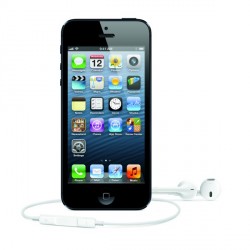 After filing its comments on the issue in October 2012 which led to a three-month grace period, the latest rules put in place by the Librarian of Congress regarding unlocking of cellphones and devices have decreed that the unlocking of such devices by third-parties that are not directly authorized by the carrier or manufacturer will be illegal as of Saturday January 26th.
After filing its comments on the issue in October 2012 which led to a three-month grace period, the latest rules put in place by the Librarian of Congress regarding unlocking of cellphones and devices have decreed that the unlocking of such devices by third-parties that are not directly authorized by the carrier or manufacturer will be illegal as of Saturday January 26th.
The new rule disallows third-party unlocking services from performing unlocks or flashing on carrier-branded devices without direct authorization from either the carrier or manufacturer, with severe penalties following for those that decide to violate the order and are spelled out under the Digital Millennium Copyright Act. The only exemptions to the rule lie with devices purchased before the window closes on Saturday.
While the rule is intended to stop mass purchases and trafficking of devices, in practice, the change to the rules stops consumers from unlocking their devices while under contract without involving the carrier and forces customers to rely on the carrier to provide device unlocking, usually on more onerous terms, if it’s even available for the device at all.
The Librarian of Congress has essentially halted the steady state of progression from its previous pro-consumer decisions in 2006 and 2010 which allowed for third-party unlocking by coming to the flawed conclusion that consumers in the US now have enough alternatives available for unlocked devices and options for requesting such services directly from carriers and manufacturers.
The problem with this conclusion is that it doesn’t take into account the inconsistency that carriers practice when it comes to unlocking devices on request from customers, usually for the purposes of international roaming or switching carriers. The most famous example of such inconsistency was AT&T, as it refused to follow its own established handset unlocking policy with the iPhone until last year, and still forced additional rules for the unlocking qualification.
Additionally, other devices such as the Motorola Photon Q are specifically designed to disallow unlocking and usage outside of carrier services, with completely sealed SIM slots for LTE and GSM SIM cards and no way to allow unlocking whatsoever, while Sprint continues in this direction with forthcoming devices.
This move is is even worse news for those that make money on the side from unlocking and flashing, as it gives that power back to the carrier, and as carriers have little incentive to offer unlocking options for their own devices and want to do away with such options in the US, with the alternative being complete dependence on a carrier for every service.
While the alternatives would lie in simply buying factory unlocked devices, many carrier lineups are lined with carrier exclusives that have no unlocked international equivalent available for purchase, making the options more limited due to their increased expense. This will also affect T-Mobile’s business model, as it has completely reconfigured its business model to draw in customers from other carriers with previously locked devices.
The Librarian’s decision will no doubt affect the way things are done in the short-term, but the longer-term effects may reverse years of progress in terms of carrier allowances for more savvy customers thanks to special interest lobbying. To put phone unlocking in the same class as breaking DVD encryption is not only a gross misrepresentation of the practice, but it takes options away from consumers, options that are now more necessary than ever in an increasingly global and mobile marketplace.
to further clarify the exemption, second-hand purchases should be safe for a while. to quote the ruling, it applies to phones “originally acquired from the operator of a wireless telecommunications network or retailer” on or after January 26 2013.
At least for the time being, this means most phones purchased second-hand on or after Jan 26 should also be exempt.
Just because there’s no longer a DMCA exemption, doesn’t make it illegal. The courts have only convicted those who have unlocked devices for the purposes of resale.
It is now, however, a gray area.
An exemption from DMCA does not mean that the exempted behavior was necessarily illegal, simply that the Library of Congress wanted to avoid the concern.
I haven’t read the original text of the ruling, but it sounds like this puts only grey-market resellers and hands-on unlock services out in the cold. It seems to me that end users are still legally entitled to unlock their devices themselves, and third parties could simply package and sell tools to simplify the process for the user. Even T-Mobile could work around this by providing a software suite which accesses and streamlines the use of extant unlocking software and mechanisms from the interwebs. After all, they are only selling SIM cards and airtime in such a situation. The customer’s use of freely available software is the customer’s own responsibilty. Anyway, the more US carriers try to tighten the noose around their market, the more that market will look to imports, clones, independent manufacturers, etc. to get what they want. Oh yeah, and US law won’t keep anyone from sending a phone to another country to get unlocked and sent back. This will only hasten the demise of companies like AT&T and Sprint and the stooges that serve them in Washinton.
The US goverment always protecting the major wireless companies, why? Because all the money they collect…they like$$$$$. They do not protect the consumer in no way. But ironically yes phone unlocking will be done outside the US. The phone companies squeeze every cent they can out of us by overcharging for the services. Is this a joke Mr President??